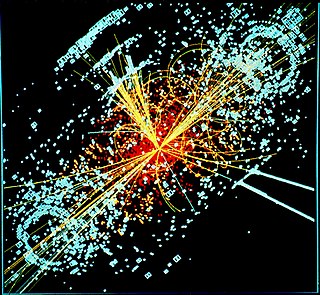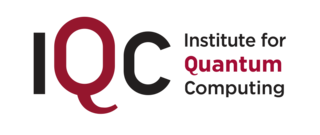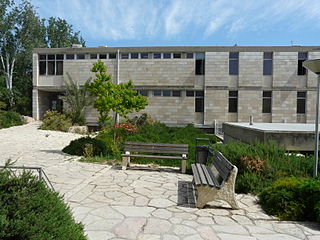
Particle physics is a branch of physics that studies the nature of the particles that constitute matter and radiation. Although the word particle can refer to various types of very small objects, particle physics usually investigates the irreducibly smallest detectable particles and the fundamental interactions necessary to explain their behaviour. By our current understanding, these elementary particles are excitations of the quantum fields that also govern their interactions. The currently dominant theory explaining these fundamental particles and fields, along with their dynamics, is called the Standard Model. Thus, modern particle physics generally investigates the Standard Model and its various possible extensions, e.g. to the newest "known" particle, the Higgs boson, or even to the oldest known force field, gravity.

Quantum computing is the use of quantum-mechanical phenomena such as superposition and entanglement to perform computation. Computers that perform quantum computation are known as a quantum computers. Quantum computers are believed to be able to solve certain computational problems, such as integer factorization, significantly faster than classical computers. The study of quantum computing is a subfield of quantum information science.
This is a timeline of quantum computing.

Theoretical computer science (TCS) is a subset of general computer science and mathematics that focuses on more mathematical topics of computing and includes the theory of computation.
Quantum information science is an area of study based on the idea that information science depends on quantum effects in physics. It includes theoretical issues in computational models as well as more experimental topics in quantum physics including what can and cannot be done with quantum information. The term quantum information theory is sometimes used, but it fails to encompass experimental research in the area and can be confused with a subfield of quantum information science that studies the processing of quantum information.
A fudge factor is an ad hoc quantity or element introduced into a calculation, formula or model in order to make it fit observations or expectations. Also known as a "Correction Coefficient" which is defined by:

Gilles Brassard, is a faculty member of the Université de Montréal, where he has been a Full Professor since 1988 and Canada Research Chair since 2001.

The Physical Research Laboratory (PRL) is a National Research Institute for space and allied sciences, supported mainly by Department of Space, Government of India. This research laboratory has ongoing research programmes in astronomy and astrophysics, atmospheric sciences and aeronomy, Earth sciences, Solar System studies and theoretical physics. It manages the Udaipur Solar Observatory and is located in Ahmedabad.

Physics beyond the Standard Model (BSM) refers to the theoretical developments needed to explain the deficiencies of the Standard Model, such as the strong CP problem, neutrino oscillations, matter–antimatter asymmetry, and the nature of dark matter and dark energy. Another problem lies within the mathematical framework of the Standard Model itself: the Standard Model is inconsistent with that of general relativity, to the point where one or both theories break down under certain conditions.

Thanu Padmanabhan is an Indian theoretical physicist and cosmologist whose research spans a wide variety of topics in Gravitation, Structure formation in the universe and Quantum Gravity. He has published nearly 300 papers and reviews in international journals and ten books in these areas. He has made several contributions related to the analysis and modelling of dark energy in the universe and the interpretation of gravity as an emergent phenomenon. He is currently a Distinguished Professor at the Inter-University Centre for Astronomy and Astrophysics, (IUCAA) at Pune, India.

The Institute for Quantum Computing (IQC) is an affiliate scientific research institute of the University of Waterloo located in Waterloo, Ontario with a multidisciplinary approach to the field of quantum information processing. IQC was founded in 2002 primarily through a donation made by Mike Lazaridis and his wife Ophelia whose substantial donations have continued over the years. The institute is now located in the Mike & Ophelia Lazaridis Quantum-Nano Centre and the Research Advancement Centre at the University of Waterloo.
Arun Kumar Pati is an Indian physicist notable for his research in quantum information and computation, the theory of geometric phases and its applications, as well as quantum mechanics. He has made pioneering contributions in the area of quantum information. He is considered an important physicist in the field of quantum information and quantum computation in India, perhaps the first.
Daniel Amihud Lidar is the holder of the Viterbi Professorship of Engineering at the University of Southern California, where he is a Professor of Electrical Engineering, Chemistry, Physics & Astronomy. He is the Director and co-founder of the USC Center for Quantum Information Science & Technology (CQIST) as well as Scientific Director of the USC-Lockheed Martin Quantum Computation Center, notable for his research on control of quantum systems and quantum information processing.
Raymond Laflamme, OC, FRSC is a Canadian physicist and founder and until mid 2017, was the director of the Institute for Quantum Computing at the University of Waterloo. He is also a professor in the Department of Physics and Astronomy at the University of Waterloo and an associate faculty member at Perimeter Institute for Theoretical Physics. Laflamme is currently a Canada Research Chair in Quantum Information. In December 2017, he was named as one of the appointees to the Order of Canada.
The Centre for Quantum Technologies (CQT) in Singapore is a Research Centre of Excellence hosted by the National University of Singapore. The Centre brings together physicists, computer scientists and engineers to do basic research on quantum physics and to build devices based on quantum phenomena. Experts in quantum technologies are applying their discoveries in computing, communications and sensing.
Quantum cognition is an emerging field which applies the mathematical formalism of quantum theory to model cognitive phenomena such as information processing by the human brain, language, decision making, human memory, concepts and conceptual reasoning, human judgment, and perception. The field clearly distinguishes itself from the quantum mind as it is not reliant on the hypothesis that there is something micro-physical quantum mechanical about the brain. Quantum cognition is based on the quantum-like paradigm or generalized quantum paradigm or quantum structure paradigm that information processing by complex systems such as the brain, taking into account contextual dependence of information and probabilistic reasoning, can be mathematically described in the framework of quantum information and quantum probability theory.

The Racah Institute of Physics is an institute at the Hebrew University of Jerusalem, part of the faculty of Mathematics and Natural Sciences on the Edmund J. Safra Campus in the Givat Ram neighborhood of Jerusalem, Israel.
Barbara M. Terhal is a theoretical physicist working in quantum information and quantum computing. She is a researcher at the Forschungszentrum Jülich, a Professor in the EEMCS Department at TU Delft, as well as the Research Lead for the Terhal Group at QUTech. Her research concerns many areas in quantum information theory, including entanglement detection, quantum error correction, fault-tolerant quantum computing and quantum memories.
Quantum image processing (QIP) is primarily devoted to using quantum computing and quantum information processing to create and work with quantum images. Due to some of the astounding properties inherent to quantum computation, notably entanglement and parallelism, it is anticipated that QIP technologies will offer capabilities and performances that are, as yet, unrivaled by their traditional equivalents. These improvements could be in terms of computing speed, guaranteed security, and minimal storage requirements, etc.

Andreas Wallraff is a German physicist who conducts research in quantum information processing and quantum optics. He has taught as a professor at ETH Zürich in Zürich, Switzerland since 2006. He worked as a research scientist with Robert J. Schoelkopf at Yale University from 2002 to 2005, during which time he performed experiments in which the coherent interaction of a single photon with a single quantum electronic circuit was observed for the first time. His current work at ETH Zürich focuses on hybrid quantum systems combining superconducting electronic circuits with semiconductor quantum dots and individual Rydberg atoms as well as quantum error correction with superconducting qubits.









